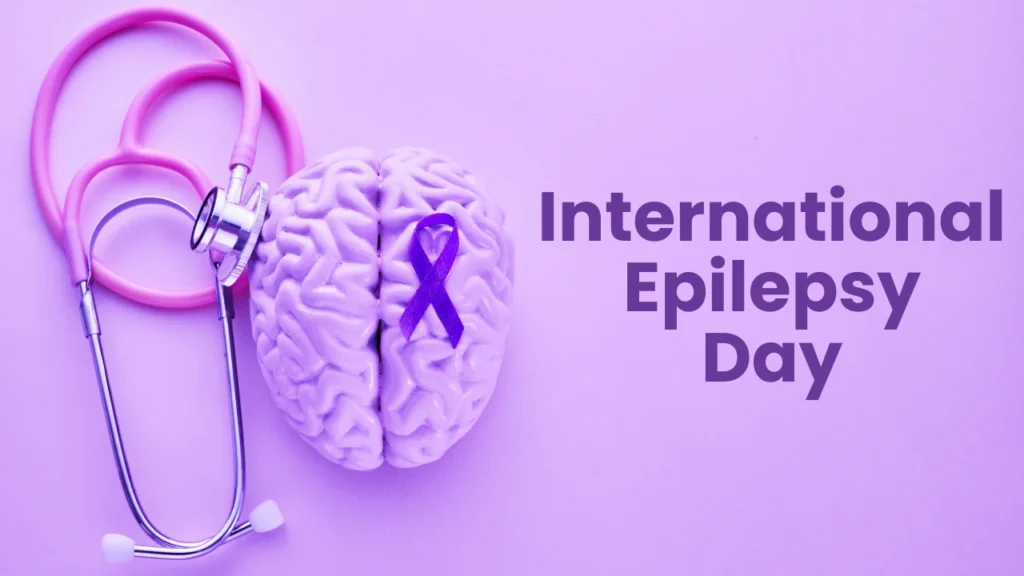World Epilepsy Day 2024 is observed annually on the second Monday of February as part of a worldwide awareness campaign.

A neurological disorder characterised by recurrent seizures, World Epilepsy Day 2024 impacts millions of individuals worldwide. Although medication is the principal approach to treating epilepsy. Incorporating a healthy lifestyle into one’s routine can serve as a substantial supplement to medical therapy. Aiding in the management of both the frequency and severity of seizures. By incorporating essential modifications to one’s lifestyle. It is possible to improve overall health and potentially mitigate the daily challenges associated with epilepsy.
Key modifications that individuals with World Epilepsy Day 2024 may wish to contemplate are as follows:
Consistent sleep patterns
While sufficient sleep is crucial for all individuals, individuals with epilepsy place heightened significance on this matter. Epilepsy may be precipitated in certain individuals by sleep disturbances or sleep deprivation. Aiming for seven to nine hours of quality sleep per night, establishing a regular sleep schedule. Developing a calming bedtime routine are all effective methods for enhancing sleep quality and decreasing the likelihood of experiencing seizures.
Strain management techniques for stress
World Epilepsy Day 2024 is frequently induced by stress. Developing skills in stress reduction techniques such as yoga, meditation, and hobby pursuits can effectively mitigate levels of stress. In addition, seeking assistance from family, colleagues, or a therapist can offer significant coping strategies for stress management.
Regular exercise
World Epilepsy Day 2024 has been demonstrated to provide a multitude of advantages for individuals who are afflicted with epilepsy. Consistent physical activity can facilitate tension reduction, mood enhancement, cardiovascular health improvement, and improved sleep quality. It is crucial, however, to select activities that are both safe and suitable for one’s personal fitness level. And to remain cognizant of any possible triggers for seizures associated with physical activity or excessive temperatures.
Refrain from consuming alcohol and substances
Certain recreational drugs and alcohol can lower the threshold for seizures and increase the risk of having them. By restricting or abstaining from the use of alcohol and illicit drugs. The frequency and intensity of seizures can be substantially diminished.
Balanced Diet
Although there is no specific “epilepsy diet,” it is vital for overall health and well-being to maintain a nutritious and balanced diet. Some individuals with epilepsy may experience an alteration in seizure activity in response to particular dietary factors. In order to identify potential triggers, such as caffeine, artificial sweeteners, or particular food additives. It is advisable to maintain a food diary. Adhering to a ketogenic diet, characterised by a high fat content, sufficient protein intake. A low carbohydrate intake, may offer potential benefits in managing seizures, especially among those afflicted with drug-resistant epilepsy.
Medication adherence
For effective management of epilepsy, it is vital to consistently take prescribed medications as directed by a healthcare professional. Stopping medication abruptly or skipping doses can elevate the likelihood of developing breakthrough seizures. Adhering strictly to the instructions provided by healthcare providers. Communicating openly regarding any concerns or adverse effects associated with medication are of the utmost importance.
Seizure response planning
Individuals and their loved ones can feel more confident and prepared in managing seizures by developing a seizure response plan. This strategy may encompass providing education to acquaintances, relatives, and colleagues. Regarding the identification of various seizure types and appropriate responses. In addition to guaranteeing accessibility to critical medical data and emergency contacts.
Consistent medical surveillance
Consistent consultations with healthcare professionals, such as neurologists or epileptologists. Vital for the purpose of monitoring seizure activity, making necessary medication adjustments, and attending to any epilepsy-related concerns or complications. Monitoring seizure frequency, triggers, and medication efficacy can furnish healthcare providers with crucial data for optimising treatment approaches.
Disclaimer
The information provided on World Epilepsy Day 2024 is for general informational purposes only. Never disregard professional medical advice or delay in seeking it because of information related to World Epilepsy Day 2024. The organizers and contributors do not endorse. Any specific tests, physicians, products, procedures, opinions, or other information mentioned in connection with World Epilepsy Day 2024. Reliance on any information provided is solely at your own risk.
Markus Mardi is a professional News Reporter at Wishma TV. He writes about Social & Religious News at Wishma TV.



